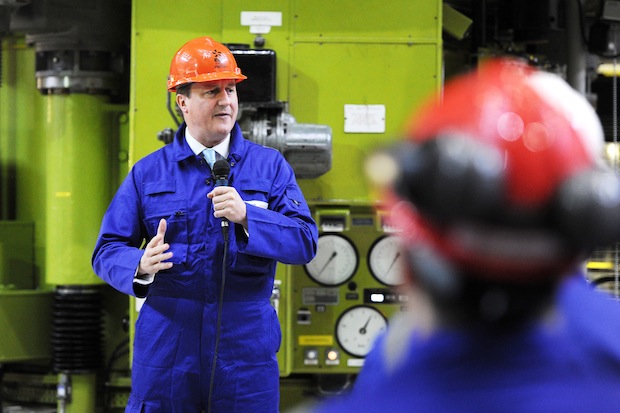Yesterday’s agreement between the French state-owned company EDF and the UK Government regarding the ‘strike price’ for the electricity that will be generated by Hinkley C should be welcomed by everybody who cares about our environment, our economy and the security of our energy supplies.
It’s taken three political parties, three Prime Ministers and two governments eight years to reach this point. Over this period, David Cameron has gone from espousing an investment-deterring policy of nuclear generation as ‘a last resort’ to welcoming the environmental and economic benefits of the industry in the shape of the deal that should pave the way for the construction of Britain’s first new nuclear reactor for a generation.
As someone involved with the development of the pro-nuclear energy policy developed by the last Labour government and largely retained by the Coalition, I know that any effective nuclear programme in the UK requires a deep and lasting political consensus. The deal to broker the development of Hinkley is extremely important, but, such is the complexity of the nuclear industry, it does not mean that the other nuclear sites earmarked for development in England and Wales will necessarily occur.
Our nuclear programme doesn’t just require a political consensus, it requires intellectual commitment and a strong political stomach. The global recession, soon followed by the tsunami which overwhelmed Japan’s Fukishima nuclear plant, gave politicians of all colours the opportunity to walk away from nuclear. We didn’t. Spare a thought, too, for those long-suffering civil servants who, throughout changes of government and an ever-changing cast-list of energy ministers have retained the ‘corporate memory’ underpinning new nuclear policy and who have delivered the latest progression in the shape of the Hinkley deal – it is on their shoulders that the successful implementation of nuclear policy rests.
Britain’s nuclear renaissance still requires some intensive midwifery – as does the development of Hinkley itself. By the time Hinkley C starts generating electricity in 2023 (assuming this timescale is met) it’s likely that Britain will have a different government and Prime Minister to those we have today.
In welcoming Ed Davey’s statement in the House of Commons, I asked him to produce a plan in which the ’critical path’ for the development of our other new nuclear sites – including Moorside in my own constituency – could be laid out. This plan should establish milestones for the development of the sites, with clear accountabilities for the public and private sector in meeting these timescales and should be aggressively driven. Market intervention? Undoubtedly. But if the deal for Hinkley C has shown anything it is this: if we want an energy policy that increases our energy security, helps bolster our economic and industrial policy and helps us to meet our environmental objectives then market intervention is here to stay.
Jamie Reed is Labour MP for Copeland.






Comments